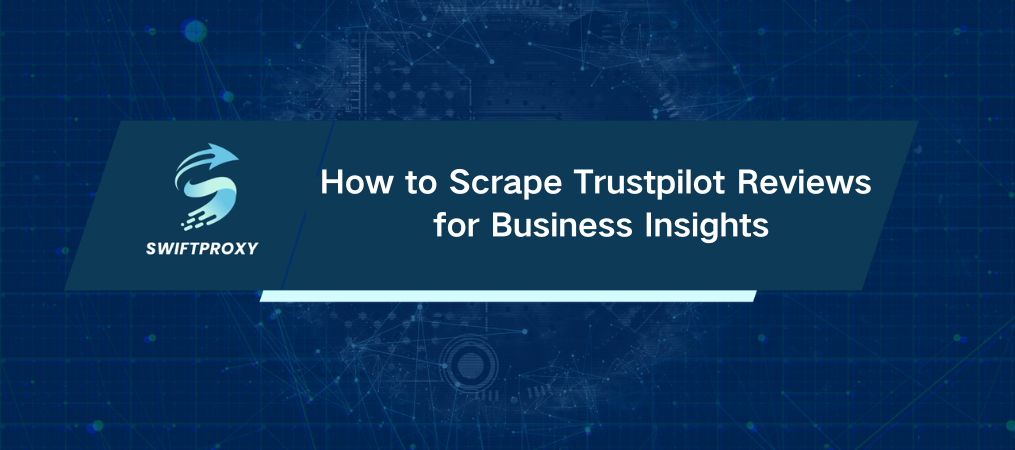How to Scrape Trustpilot Reviews for Business Insights

Every company is after one thing: the voice of the customer. Trustpilot, with millions of reviews, is a goldmine for businesses looking to tap into genuine customer feedback. But manually sifting through thousands of reviews? That's a no-go. Enter the Trustpilot scraper. This powerful tool can help businesses extract valuable data quickly and efficiently. Let's dive into how you can leverage this method to boost your company's reputation and gain critical insights.
Understanding Trustpilot Scraper
Think of a Trustpilot scraper as your personal research assistant. It's software designed to extract review data from Trustpilot's platform, organizing it neatly for you. Forget about tedious manual collection. A scraper automates the process, gathering bulk reviews in minutes—giving you a wealth of customer feedback to analyze.
How Do You Scrape Trustpilot Reviews
Scraping Trustpilot is not as difficult as it sounds. You have two main options: use pre-built web scraping tools or develop a custom script tailored to your needs. Tools like BeautifulSoup or Scrapy can get you started without a heavy coding background. For those with more technical expertise, building a custom script allows greater flexibility, enabling you to focus on specific data points like ratings, sentiment, or even reviewer details.
But don't forget, while Trustpilot reviews are publicly available, always check their terms of use. They have guidelines for scraping, and for good reason. Respect them to stay on the right side of the law.
Why Scrape Trustpilot Reviews
Why should you bother scraping Trustpilot? Simple: it gives you the edge. Businesses can uncover trends, spot recurring issues, and gather direct customer feedback without combing through endless pages of reviews. Analyzing this data helps you improve customer experience, spot gaps in your service, and enhance your reputation. When you understand exactly what customers love—or don't love—you can make smarter decisions.
Imagine that you're able to spot a rising pattern in complaints about your delivery process. That insight alone could lead to faster solutions, happier customers, and fewer negative reviews.
The Legal and Ethical Side of Scraping
Let's get one thing straight: with great power comes great responsibility. Scraping is legal when done right, but ethical considerations are a must. Always ensure you're adhering to Trustpilot's terms and conditions and complying with data privacy regulations, such as GDPR. Scraping without proper consent or misusing data could land you in hot water, and that's something no business wants.
Final Thoughts
Scraping Trustpilot reviews can be a game-changer. But to truly benefit from it, you need to approach it with care and responsibility. When done right, it offers a treasure trove of insights that can shape your business strategy, improve customer satisfaction, and give you a competitive edge. Be strategic, ethical, and always mindful of compliance. The data you uncover could be the key to your next big breakthrough.

















































